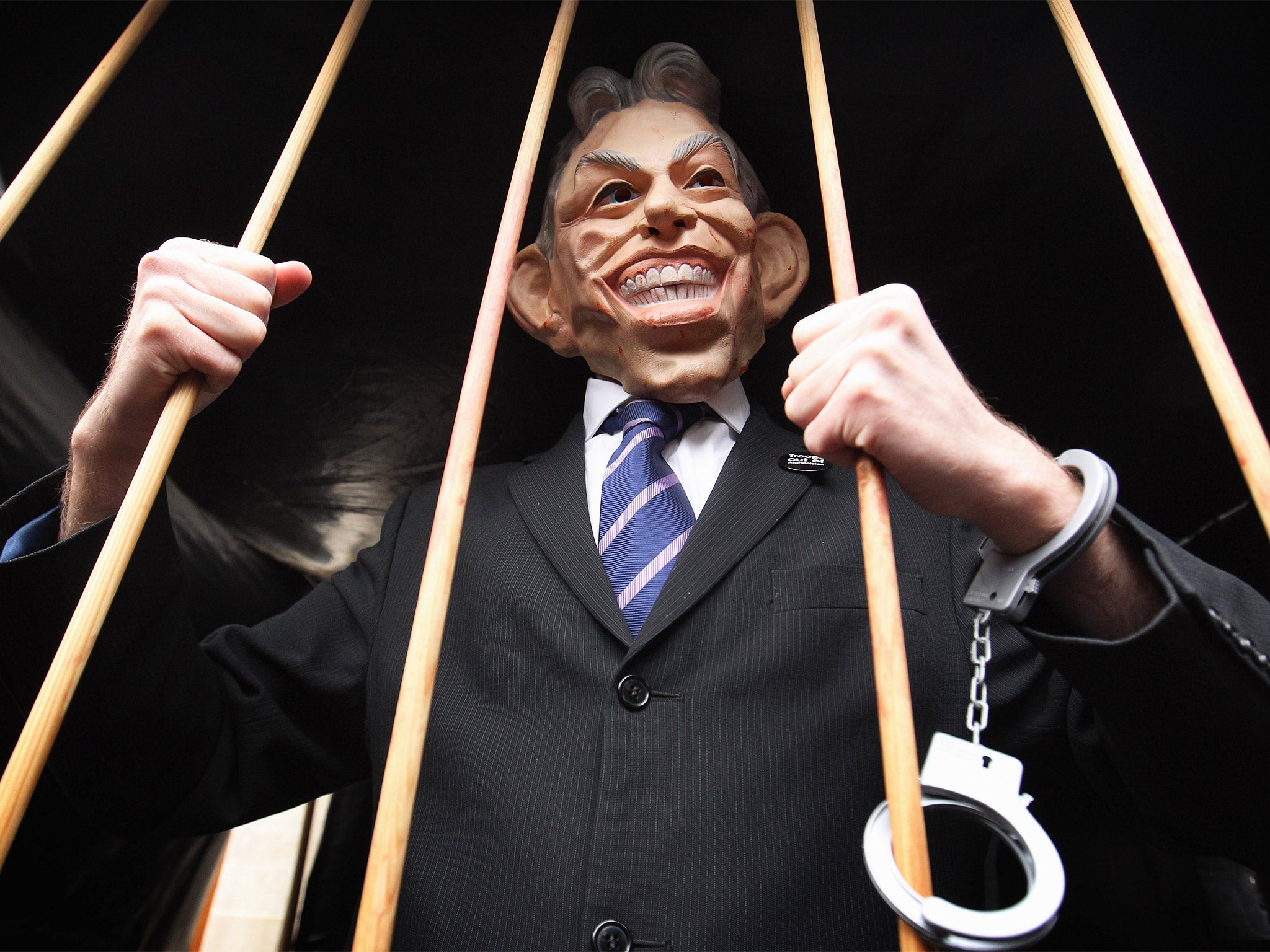Why there may never be an ideal time to publish the Chilcot inquiry
From its very outset, the timing of the Iraq Inquiry was shaped by politics

It is almost two years since The Independent published details from inside Sir John Chilcot’s inquiry team.
Sources explained that the largely complete Iraq report would “challenge previous accounts of what happened” when Tony Blair took Britain to war in the US-led assault on Saddam Hussein’s regime.
Assurances were offered that around two months later – in April or May 2013 – letters would be sent out to those who were criticised in a report. Various difficulties with both the Cabinet Office and Washington had apparently been overcome and imminent delivery was promised. We are still waiting.
The inquiry was first announced by Gordon Brown in June 2009. Mr Brown’s decision to hold off from starting the investigation until six years after the conflict was a political one: the 2010 general election was imminent, and despite Brownites being anxious to distances themselves from the Blair regime, no one was certain what a full independent investigation would reveal.
Now another general election is upon us – and there is still no sign of the Iraq report’s verdict on what happened back in 2003. The “Maxwellisation” letters due to be sent in mid-2013 were only just dispatched in December 2014. Sir John’s letter to the Prime Minister said there was “no realistic prospect” of his tome being delivered before May. Which points to October or November this year as the earliest slot for publication – the beginning of the first full parliamentary term for the new government.
However, if the 7 May election delivers a hung parliament, as some predict, and a second election is needed later this year, will that in turn necessitate further delay in publishing the long overdue report?
If the stall trails into early 2016 and the beginning of the “primaries” season for the United States presidential election in November 2016, will any political objection from the Republicans – with George W Bush’s brother, Jeb, already a potential nominee – be accommodated by yet another postponement?
As one senior civil servant told The Independent “This may be one of the most politically charged inquiries in our history. Maybe there will never be an ideal time to publish it.”
Tony Blair claims the delay is nothing to do with him, and that speculation about Chilcot’s report being stalled is politically motivated, and is not helping. David Cameron claims the delay is “extremely frustrating” and blamed the Labour government in 2006 for not taking his advice and going ahead with a full inquiry back then.
Meanwhile, parliamentary committees are lining up to quiz Sir John Chilcot. They want an explanation of why four other investigations linked to the Iraq war – including the Hutton and Butler reports – delivered verdicts within months of formal proceedings concluding, yet this inquiry ordered in 2009 is now close to its sixth year of examination.
The broad remit of the inquiry may be an organisational millstone. Chilcot’s panel were ordered to consider the period from the summer of 2001 to the end of July 2009. That includes the intelligence background to the 9-11 attacks, the run-up to the Iraq invasion, the Blair-Bush preparations, military actions inside Iraq and the aftermath, plus the failures and cock-ups that resulted from an abject failure to control Iraq once Saddam was defeated and executed.
In addition to explanations, Sir John’s team was asked to identify “the lessons that can be learned if we face similar situations in future”. Given that range of tasks, it is almost too simplistic to blame the continuing delay solely on administrative difficulties.
Lawyers representing those criticised in the report have hinted, privately, over the past month or so that when letters from the inquiry have arrived, there has been shock at the severity of the conclusions. One barrister told The Independent: “No wonder there have been delays. A tidy, safe, non-political report could have been rushed through. This isn’t one of them.”
Washington’s influence, and the Americans’ insistence on having a say on what goes in the report and what doesn’t, has contributed to the amount of diplomatic time needed to reassure the US State Department that Britain hasn’t been playing fast and loose with presidential correspondence that it thought would remain private.
The Cabinet Office maintains such a description overplays the influence of the US and that Chilcot is essentially a UK political business being dissected.
Only when the report is finally published, and the scale of the redactions revealed, will we know if that assurance is justified.
Join our commenting forum
Join thought-provoking conversations, follow other Independent readers and see their replies
Comments
Bookmark popover
Removed from bookmarks